#elizabeth cervantes
Photo
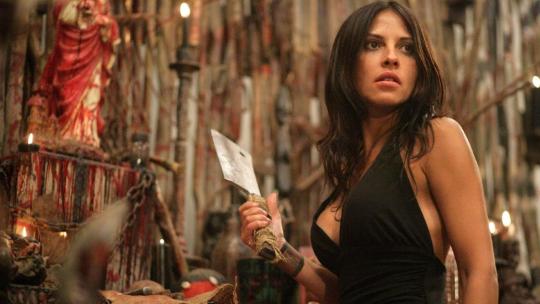
Esta semana, especial cine de terror de los 2000.
Borderland. Al otro lado de la frontera (Zev Berman, 2007)
2 notes
·
View notes
Text
'Infelices Para Siempre' con Adrián Uribe y Consuelo Duval | Tráiler oficial
Videocine presenta el tráiler oficial de'Infelices Para Siempre', una comedia romántica protagonizada por Adrián Uribe y Consuelo Duval.

View On WordPress
#Adrán Uribe#Angélica Aragón#Ari Telch#Consuelo Duval#Eduardo Yáñez#Elizabeth Cervantes#Livia Brito#Luis Arrieta#Nico Antonyan#Pocholo
0 notes
Text


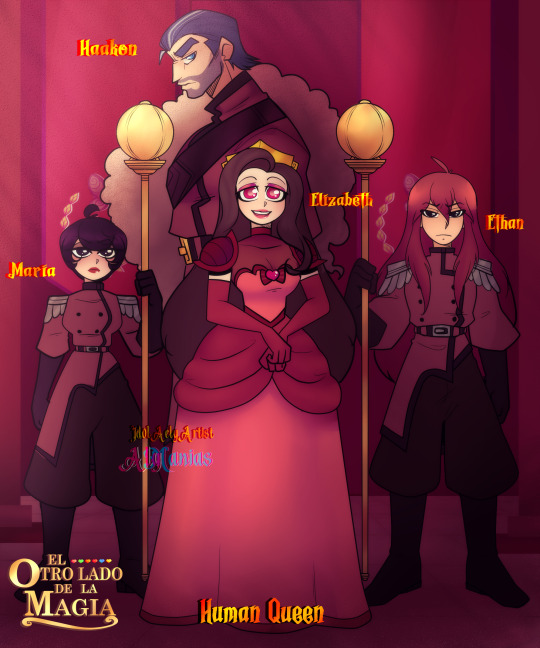
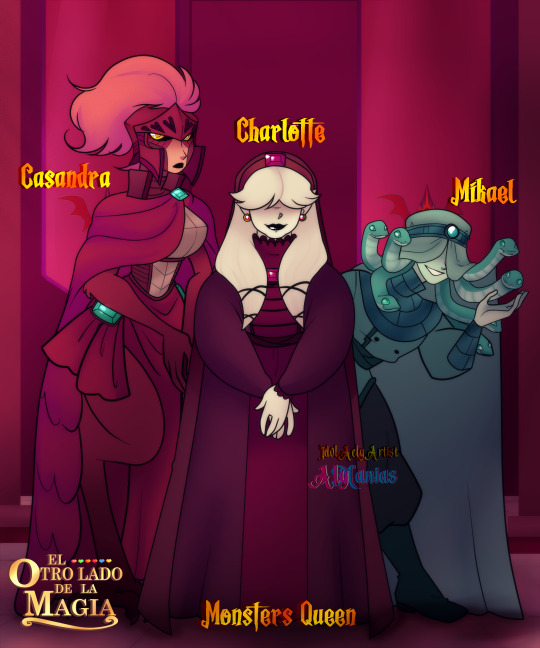

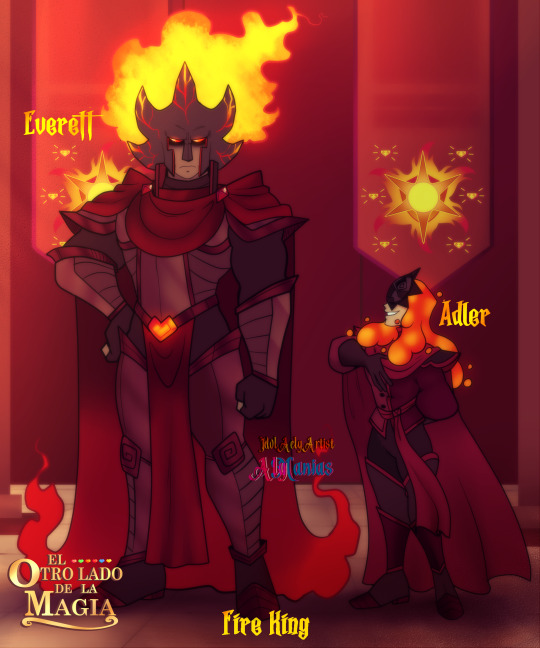
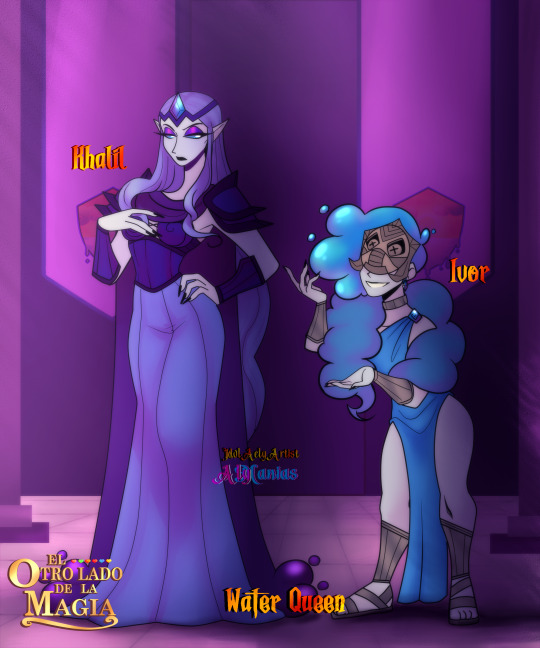
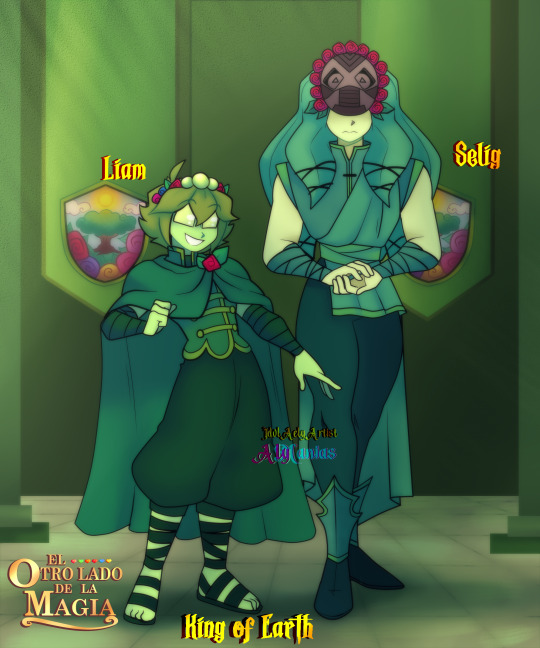
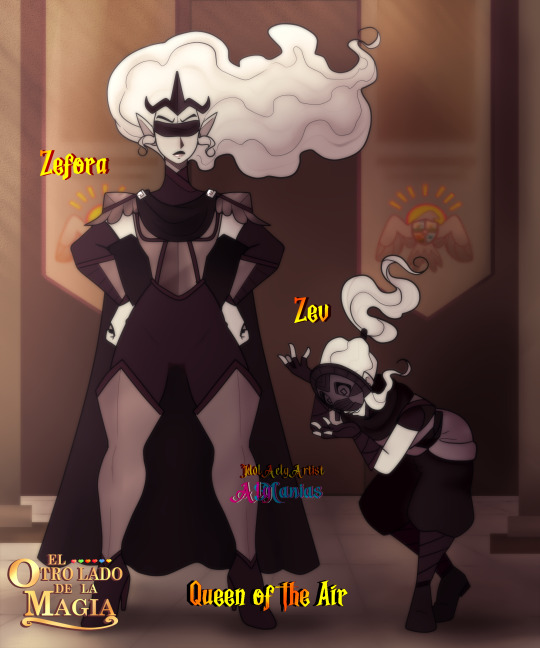
Personajes de mi próximo (si Dios me lo permite obvi) webcomic "El Otro Lado de la Magia" 6u6
Obvio faltan otros más, y espero poder mostrarlos pronto al publico. nun
#El Otro Lado de la Magia#my oc's#my art#Elias human Prince#Cervantes Monsters prince#Amy Fire Princess#Raviv water princess#Melissa princess of the earth#Ares Fire prince#Elizabeth Human Queen#Charlotte Monsters Queen#Rosalie Phantom Queen#Everett Fire King#Khalil Water Queen#Liam King of Earth#Zefora Queen of the Air#Ofelia#Mikael#Casandra#Haakon#Maria#Ethan#Adler#Ivor#Selig#Zev
209 notes
·
View notes
Text
0 notes
Text
Sin problemas
Se accidenta titular de la JUCOPO de Veracruz
View this post on Instagram A post shared by yo acuso (@yo_acuso)
Se encuentra bien, asegura gobernador
Carlos Morales Tapia | Xalapa, Ver. – Este lunes se dio a conocer que, Juan Javier Gómez Casarín, presidente de la Junta de Coordinación Política de la LXVI Legislatura veracruzana, sufrió un accidente vehicular a la altura de Plan del Río,…

View On WordPress
0 notes
Text
Redoblar seguridad en Álamo-Temapache, pide diputada Elizabeth Cervantes.
*** Plantea que el Congreso exhorte a los tres órdenes de gobierno y a la FGE a intensificar acciones y esclarecer ilícitos.
Xalapa, Ver.- La diputada Elizabeth Cervantes de la Cruz presentó al Pleno legislativo un Anteproyecto de Punto de Acuerdo por el que se exhorta a los tres órdenes de gobierno a intensificar las acciones en materia de seguridad en el municipio de Álamo Temapache y a la…

View On WordPress
0 notes
Text
ENCONTRE UM AUTOR:
Envie sugestões.
Leia uma citação no modo aleatório.
Autores Desconhecidos
Adélia Prado
Adrian Tchaikovsky
Affonso Romano de Sant’anna
Alain de Botton
Albert Einstein
Aldous Huxley
Alexander Pushkin
Amanda Gorman
Anaïs Nin
Andy Warhol
Andy Wootea
Anna Quindlen
Anne Frank
Antoine de Saint-Exupéry
Aristóteles
Arnaldo Jabor
Arthur Schopenhauer
Augusto Cury
Ben Howard
Benjamin Alire Sáenz
Benjamin Rush
Bill Keane
Bob Dylan
Brigitte Nicole
C. JoyBell C.
C.S. Lewis
Carl Jung
Carlos Drummond de Andrade
Carlos Fuentes
Carol Ann Duffy
Carol Rifka Brunt
Carolina Maria de Jesus
Caroline Kennedy
Cassandra Clare
Cecelia Ahern
Cecília Meireles
Cesare Pavese
Charles Baudelaire
Charles Chaplin
Charlotte Nsingi
Cheryl Strayed
Clarice Lispector
Claude Debussy
Coco Chanel
Connor Franta
Coolleen Hoover
Cora Coralina
Czesław Miłosz
Dale Carnegie
David Hume
Deborah Levy
Djuna Barnes
Dmitri Shostakovich
Douglas Coupland
Dream Hampton
E. E. Cummings
E. Grin
E. Lockhart
EA Bucchianeri
Edith Wharton
Ekta Somera
Elbert Hubbard
Elizabeth Acevedo
Elizabeth Strout
Emile Coue
Emily Brontë
Ernest Hemingway
Esther Hicks
Faraaz Kazi
Farah Gabdon
Fernando Pessoa
Fiódor Dostoiévski
Florbela Espanca
Franz Kafka
Frédéric Chopin
Fredrik Backman
Friedrich Nietzsche
Galileu Galilei
Georg Wilhelm Friedrich Hegel
George Orwell
Hafiz
Hanif Abdurraqib
Helen Oyeyemi
Henry Miller
Henry Rollins
Hilda Hilst
Iain Thomas
Immanuel Kant
Jacki Joyner-Kersee
James Baldwin
James Patterson
Jane Austen
Jean Jacques Rousseau
Jean Rhys
Jean-Paul Sartre
Jeremy Hammond
JK Rowling
João Guimarães Rosa
Joe Brock
Johannes Brahms
John Banville
John C. Maxwell
John Green
John Wooden
Jojo Moyes
Jorge Amado
José Leite Lopes
Joy Harjo
Juan Ramón Jiménez
Juansen Dizon
Katrina Mayer
Kurt Cobain
L.J. Smith
L.M. Montgomery
Leo Tolstoy
Lisa Kleypas
Lord Byron
Lord Huron
Louise Glück
Lucille Clifton
Ludwig van Beethoven
Lya Luft
Machado de Assis
Maggi Myers
Mahmoud Darwish
Manila Luzon
Manuel Bandeira
Marcel Proust
Margaret Mead
Marina Abramović
Mario Quintana
Mark Yakich
Marla de Queiroz
Martha Medeiros
Martin Luther King
Mary Oliver
Mattia
Maya Angelou
Mehdi Akhavan-Sales
Melissa Cox
Michaela Chung
Miguel de Cervantes Saavedra
Mitch Albom
N.K. Jemisin
Neal Shusterman
Neil Gaiman
Nicholas Sparks
Nietzsche
Nikita Gill
Nora Roberts
Ocean Vuong
Osho
Pablo Neruda
Patrick Rothfuss
Patti Smith
Paulo Coelho
Paulo Leminski
Perina
Peter Ilyich Tchaikovsky
Phil Good
Pierre Ronsard
Platão
Poe
R.M. Drake
Raamai
Rabindranath Tagore
Rachel de Queiroz
Ralph Emerson
Raymond Chandler
René Descartes
Reyna Biddy
Richard Kadrey
Richard Wagner
Ritu Ghatourey
Roald Dahl
Robert Schumann
Roy T. Bennett
Rumi
Ruth Rendell
Sage Francis
Séneca
Sérgio Vaz
Shirley Jackson
Sigmund Freud
Simone de Beauvoir
Spike Jonze
Stars Go Dim
Steve Jobs
Stephen Chbosky
Stevie Nicks
Sumaiya
Susan Gale
Sydney J. Harris
Sylvester McNutt
Sylvia Plath
Sysanna Kaysen
Ted Chiang
Thomas Keneally
Thomas Mann
Truman Capote
Tyler Knott Gregson
Veronica Roth
Victor Hugo
Vincent van Gogh
Virgílio Ferreira
Virginia Woolf
Vladimir Nabokov
Voltaire
Wale Ayinla
Warsan Shire
William C. Hannan
William Shakespeare
Wolfgang Amadeus Mozart
Yasmin Mogahed
Yoke Lore
Yoko Ogawa
148 notes
·
View notes
Text
List of books I read in 2023
Charlotte's Web by E.B. White
Slouching Towards Bethlehem by Joan Didion
The Maidens by Alex Michaelides
The Invisible Life of Addie LaRue by V.E. Schwab
The Broken Girls by Simone St. James
Women Talking by Miriam Toews
L'homme semence by Violette Ailhaud
Into the Darkest Corner by Elizabeth Haynes
A Farewell to Arms by Ernest Hemingway
Dark Places by Gillian Flynn
On Magic & The Occult by W.B. Yeats
Faithful Place by Tana French
The Secret Scripture by Sebastian Barry
Say Nothing: A True Story of Murder and Memory in Northern Ireland by Patrick Radden Keefe
Opened Ground: Selected Poems 1966-1996 by Seamus Heaney
The Love Object by Edna O'Brien
Don Quijote de la Mancha by Miguel de Cervantes Saavedra
Night by Elie Wiesel
In Between the Sheets by Ian McEwan
The Lost Days by Rob Reger & Jessica Gruner
Project Hail Mary by Andy Weir
As I Lay Dying by William Faulkner
Parallax by Sinéad Morrissey
The Woman in the Strongbox by Maureen O'Hagan
Diaries, 1910-1923 by Franz Kafka
The Nightingale by Kristin Hannah
Anne of Green Gables by L.M. Montgomery
We Were the Mulvaneys by Joyce Carol Oates
The Family Upstairs by Lisa Jewell
Walking to Martha's Vineyard by Franz Wright
A Tale for the Time Being Ruth Ozeki
Mouthful of Forevers by Clementine von Radics
Wasteland by Francesca Lia Block
The Fact of a Body: A Murder and a Memoir by Alexandria Marzano-Lesnevich
Find Me by André Aciman
The Awakening by Kate Chopin
The Grace Year by Kim Ligget
The Five: The Untold Lives of the Women Killed by Jack the Ripper by Hallie Rubenhold
A Good Girl's Guide to Murder by Holly Jackson
And Then There Were None by Agatha Christie
A Stolen Life by Jaycee Dugard
Coraline by Neil Gaiman
The Castle of Otranto by Horace Walpole
Mr. Mercedes by Stephen King
My Best Friend's Exorcism by Grady Hendrix
Psycho by Robert Bloch
Classic Tales Of Vampires And Shapeshifters by Tig Thomas
Love Devours: Tales of Monstrous Adoration by Sarah Diemer
Through the Woods by Emily Carroll
Fahrenheit 451 by Ray Bradbury
Putney by Sofka Zinovieff
The Woman in Me by Britney Spears
Wicked: The Life and Times of the Wicked Witch of the West by Gregory Maguire
Julius Caesar by William Shakespeare
The Maid by Nita Prose
A Little Princess by Frances Hodgson Burnett
The Deep by Rivers Solomon
You can follow me or add me as a friend on Goodreads.
52 notes
·
View notes
Text
i love when single muse blogs have their char's name in the pinned post for various reasons. i hate that if i did that, it would look like,
A MULTI MUSE BLOG FOR: ALESSANDRA BARESI, MARYANNE BARKAN, ADRIEN BLANC, BECK BOY, BIANCA CABRERA CERVANTES, RIAN DOYLE, VERONICA FANG, CAIN GLASS, CULLEN GLASS, GABRIELA GLASS, KIERAN GLASS, BURNS HARRIS, HARRIS HARRIS, JUNIPER HAYES HARRIS, LILA HARRIS, SPIRIT HARRIS, AMELIA HARTMANN, FELICITY HARTMANN, ALEX HAVEN, JEREMY HEALY, CASS HWANG, ELIJAH KNIGHT, MACKENZIE KNIGHT, RACHEL KNIGHT, JOSEPH LEVY, ISLA MADDIX, ALEX GUERIN (MANES), JAVIER MARROQUÍN, HASSAN MIMAR, NAOMI MONDAY, DAVY NICHOLS, PHOEBE NICHOLS, ELIZABETH "BUSY" NOLAN, SAMUEL NOLAN, ANDROMACHE OF SCYTHIA, HANNA ROBINSON, GRAHAM SINCLAIR, ROSE SINCLAIR, RHEA SMITH, KAI-MING SONG, KENNEDY ST. CLAIR, ESTHER THOMAS, WESTON WESTMORELAND, LOUIS YOUNG, MAXWELL YOUNG, NOAH YU
and that's crazy. that's like 100 lines
7 notes
·
View notes
Text
Tumblr's Guide to Shostakovich- Asides- Ivan Sollertinsky
So, in addition to my weekly posting for Tumblr's Guide to Shostakovich, I decided I want to do a series of related "asides" posts. These will be posted irregularly (as opposed to weekly) and cover aspects related to Shostakovich that don't fit neatly into one post focusing on one part of the chronological timeline. In this case, I want to talk about Ivan Ivanovich Sollertinsky, specifically his role in Shostakovich's life and music. Sources I'll be citing include Elizabeth Wilson's Shostakovich: A Life Remembered, Shostakovich's own letters to Sollertinsky and Isaak Glikman, Dmitri and Lyudmila Sollertinsky's Pages from the Life of Dmitri Shostakovich, Pamyati I.I. Sollertinskogo (Memories of I.I. Sollertinsky), and I.I. Sollertinsky: Zhizn' i naslediye (Life and Legacy), the latter two both by Lyudmila Mikheeva. Photo citations include the DSCH Publishers website and the DSCH Journal photo archive.

(Dmitri Shostakovich and Ivan Sollertinsky, Novosibirsk, 1942.)
Ivan Ivanovich Sollertinsky was born in Vitebsk, present-day Belarus, on December 3, 1902. He was a polymath, excelling in humanities fields, including linguistics, philosophy, musicology, history, and literature- particularly that of Cervantes. He specialized in Romano-Germanic philology, and spoke a wide range of languages; sources I've read vary from claiming he spoke anywhere from 25 to 30. (He specialized in Romance languages, but I can also confirm from sources that he studied Hungarian, Japanese, Greek, Sanskrit, and German. I've heard it said that he kept a diary in ancient Portuguese so nobody could read it, but I haven't seen this verified.) He had a ferocious wit, which he used to uplift friends and skewer enemies (there's a hilarious anecdote where he once saddled a critic opposed to Shostakovich with the nickname "Carbohydrates" for life), and worked as a professor, orator, and artistic director of the Leningrad Philharmonic. And yet, this impossibly bright star would burn out all too soon at the age of 41 due to a terminal heart condition, leaving his closest friend devastated- and inspired.
Dmitri Shostakovich first met Ivan Sollertinsky in 1921, when they were both students at the Petrograd Conservatory. While Shostakovich claimed he was at first too intimidated to talk to Sollertinsky the first time he saw him, when they met again in 1926, Shostakovich was waiting outside a classroom to take an exam on Marxism-Leninism. When Sollertinsky walked out of the classroom, Shostakovich "plucked up courage and asked him":
"Excuse me, was the exam very difficult?"
"No, not at all," [Sollertinsky] replied.
"What did they ask you?"
"Oh, the easiest things: the growth of materialism in Ancient
Greece; Sophocles' poetry as an expression of materialist tendencies; English seventeenth-century philosophers and something else besides!"
Shostakovich then goes on to state he was "filled with horror at his reply."
(...Yes, these are real people we are talking about. According to Shostakovich, this actually happened. And I love it.)
Later, in 1927, they met at a gathering hosted by the conductor Nikolai Malko, where they hit it off immediately. Malko recalls that they "became fast friends, and one could not seem to do without the other." He further characterizes their friendship:
When Shostakovich and Sollertinsky were together, they were always fooling. Jokes ran riot and each tried to outdo the other in making witty remarks. It was a veritable competition. Each had a sharply developed sense of humour; both were bright and observant; they knew a great deal; and their tongues were itching to say something funny or sarcastic, no matter whom it might concern. They were each quite indiscriminate when it came
to being humorous, and if they were too young to be bitter they could still come mercilessly close to being malicious.
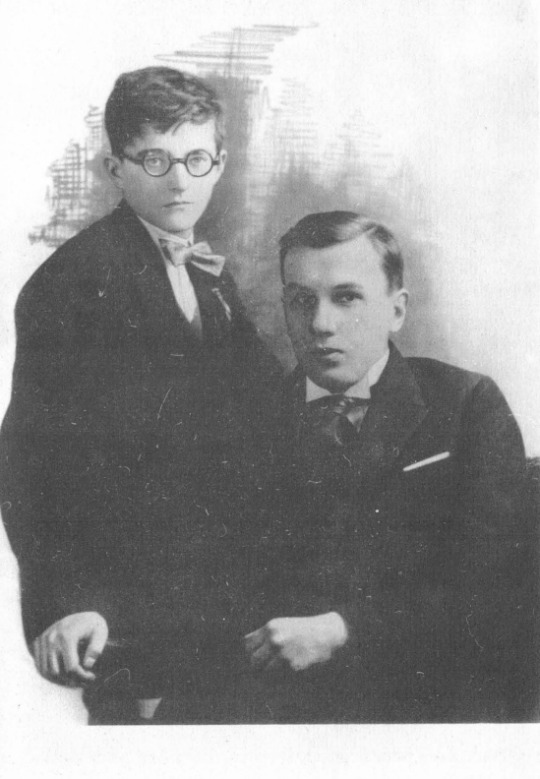
(Shostakovich and Sollertinsky, 1920s.)
Sollertinsky and Shostakovich appeared to be perfect complements of each other- one brash, extroverted, and confident, and the other shy, withdrawn, and insecure, but each sharing a sarcastic sense of humour and love for the arts that would carry throughout their friendship. In Shostakovich's letters to Sollertinsky, we see him confide in him time and again, in everything from drama with women to fears in the midst of the worsening political atmosphere. When worrying about the reception of his ballet "The Limpid Stream," Shostakovich writes in a letter from October 31, 1935:
I strongly believe that in this case, you won't leave me in an extremely difficult moment of my life, and that the only person whose friendship I cherish, the apple of my eye, is you.
So, write to me, for god's sake.
And, in a moment of frustration from August 2, 1930 Shostakovich writes:
"You have a rich personal life. And mine, generally, is shit."
(Famous composers, am I right? They're just like us.)
In addition to a friendship that would last until Sollertinsky's untimely death, he and Shostakovich would influence each other greatly in the artistic spheres as well. Sollertinsky dedicated himself primarily to musicology after meeting Shostakovich (his first review of an opera, Krenek's Johnny, appeared in 1928, after they had become friends), and in turn, Sollertinsky introduced Shostakovich to one of his greatest musical inspirations- the works of Gustav Mahler. Much is to be said about Mahler's influence on Shostakovich's music, to the point where it deserves its own post, but it goes without saying that without Sollertinsky, Shostakovich's entire body of work would have turned out much differently. Starting with the Fourth Symphony (1936), Shostakovich's symphonic works began to take on a heavily Mahlerian angle (in addition to many vocal works), becoming a permanent fixture in his distinct musical style.
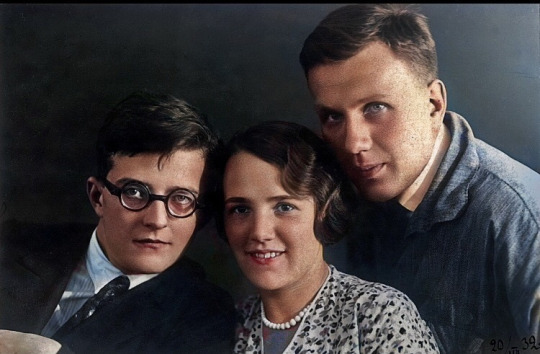
(Colorized image of Shostakovich, his wife Nina Vasiliyevna, and Sollertinsky, 1932. One of my absolute favourite photographs.)
Shostakovich's letters to Sollertinsky, from the 20s to early 30s, are characterized by puns and literary references, snide remarks, nervous confessions, and vivid descriptions of the locations he traveled to during his early career. However, as the 1930s progressed and censorship in the arts became more restrictive, signs of worry begin to take shape in the letters. This would all culminate in January 1936, with the denunciation of Shostakovich's opera Lady Macbeth of the Mtsensk District in Pravda. I'll go further into detail about the opera and its denunciation in a later post, but for now, I want to focus on its impact on Shostakovich and Sollertinsky's friendship.
As one of the first world-famous composers whose career began in the then-relatively young Soviet Union, targeting Shostakovich proved to be a calculated move. Due to his prominence and the acclaim he had previously received, both in the USSR and abroad, the portrayal of Shostakovich as a "formalist" meant someone had to take the blame for his supposed "corruption" towards western-inspired music and the avant-garde. The blame fell upon Sollertinsky, who was lambasted in the papers as the "troubadour of formalism." To make matters worse, Sollertinsky had long showed a fascination with western European composers, such as the Second Viennese School, and had previously praised Lady Macbeth in a review as the "future of Soviet art." An article in Pravda from February 14, 1936, about less than a month after the denunciation, stated:
“Shostakovich should in his creation entirely free himself from the disastrous influence of the ideologists of the ‘Leftist Ugliness’ type of Sollertinsky and take the road of truthful Soviet art, to advance in a new direction, leading to the sunny kingdom of Soviet art.”
Critics who had initially praised Lady Macbeth had begun to retract their positive reviews in favour of negative ones, and a vote was cast on a resolution on whether or not to condemn the opera. According to Isaak Glikman, their mutual friend, Shostakovich spoke with Sollertinsky, who was conflicted on what to do, beforehand. Although Sollertinsky didn’t want to condemn his friend, he supposedly told Glikman that Shostakovich had given him permission to “vote for any resolution whatsoever, in case of dire necessity.” When denouncing the opera (supposedly with Shostakovich's permission), Sollertinsky had commented that in order to develop a “true connection” to the Soviet public, Shostakovich would have to develop a “true heroic pathos, and that Shostakovich would ultimately succeed “in the genre of Soviet musical tragedy and the Soviet heroic symphony.” After Shostakovich’s second denunciation in Pravda of his ballet, “The Limpid Stream,” and the withdrawal of his Fourth Symphony- arguably the most Mahlerian of his middle period works- the Fifth Symphony, easily interpreted to follow these criteria, had indeed restored him to favour. Sollertinsky’s reputation, too, was saved.

(Aleksandr Gauk, Shostakovich, Sollertinsky, Nina Vasiliyevna, and an unidentified person, 1930s.)
In 1938, Sollertinsky contracted diphtheria. Ever tireless, he continued to dictate opera reviews and even learned Hungarian while hospitalized, although he became paralyzed in the limbs and jaw. Shostakovich wrote to him often with touching concern:
Dear friend,
It's terribly sad that you are spending your much needed and precious vacation still sick. In any case, when you get better, you need to get plenty of rest.
By the time the letters from this period break off, it's because Shostakovich was able to visit Sollertinsky in the hospital, which he did whenever he was able.
While Sollertinsky was able to recover, their friendship would face yet another test in 1941, due to the German invasion of the Soviet Union during WWII. Sollertinsky evacuated with the Leningrad Philharmonic to Novosibirsk, while Shostakovich chose to stay in Leningrad. However, as the city fell under siege, due to the safety of his family, Shostakovich fled with Nina Vasiliyevna and their two children to Kubiyshev (now Samara) that October, having spent about a month in Leningrad during what would be one of the deadliest sieges of the 20th century. It was in Kubiyshev that Shostakovich would finish his famous Seventh Symphony (which, again, will receive its own post), before eventually moving permanently to Moscow (although he still taught for a time at the Leningrad Conservatory).
During this period of evacuation, Shostakovich's letters to Sollertinsky are heartbreaking. We not only see him pining for his friend, but worrying for his safety and that of his family, including his mother and sister, who were still in Leningrad at the time. Still, he reminisces of their time together before the war, with the hope that he and Sollertinsky would be back home soon. In a letter from 12th February, 1942:
Dear friend, I painfully miss you, and believe that soon, we will be home, and will visit each other and chat about this and that over a bottle of good Kakhetian no. 8 [a Georgian wine]. Take care of yourself and your health. Remember: You have children for which you are responsible, and friends, and among them is D. Shostakovich.
In 1943, Sollertinsky arrived in Moscow, where Shostakovich was living at the time, to give a speech on the anniversary of Tchaikovsky’s death. At long last, they finally were able to see each other, and anticipated that soon enough, their long period of separation, made bearable only by letters and phone calls, would come to an end: Sollertinsky, living in Novosibirsk, was planning to return to Moscow in February of 1944 to teach a course on music history at the conservatory. When he and Shostakovich said their goodbyes at the train station, neither of them knew it would be the last time they saw one another.
Sollertinsky's heart condition, coupled with his tendency to overwork, poor living conditions, heavy drinking, and added stress, often left him fatigued. On the night of February 10th, 1944, due to a sudden bout of exhaustion, he stayed the night with conductor Andrei Porfiriyevich Novikov, where he died unexpectedly in his sleep. His last public appearance had been the speeches he gave on February 5th and 6th of that year- the opening comments for the Novosibirsk premiere of Shostakovich’s 8th Symphony. A remarkable amount of telegrams and letters from Shostakovich to Sollertinsky survive and have been published in Russian. Some seem hardly significant; others carry great historical importance. Sollertinsky took many of them with him from Leningrad during evacuation; those letters were considered among his most prized possession. His son, Dmitri Ivanovich Sollertinsky, was named after Shostakovich- breaking a long tradition in his family in which the first son was always named "Ivan."
As for Shostakovich, we have letters to multiple correspondents detailing just how distraught he was for months after receiving news via telegram of Sollertinsky’s death. To Sollertinsky’s widow, Olga Pantaleimonovna Sollertinskaya, he wrote:
“It will be unbelievably hard for me to live without him. [...] In the last few years I rarely saw him or spoke with him. But I was always cheered by the knowledge that Ivan Ivanovich, with his remarkable mind, clear vision, and inexhaustible energy, was alive somewhere. [...] Ivan lvanovich and I talked a great deal about everything. We talked about that inevitable thing waiting for us at the end of our lives- about death. Both of us feared and dreaded it. We loved life, but knew that sooner or later we would have to leave it. Ivan lvanovich has gone from us terribly young. Death has wrenched him from life. He is dead, I am still here. When we spoke of death we always remembered the people near and dear to us. We thought anxiously about our children, wives, and parents, and always solemnly promised each other that in the event of one of us dying, the other would use every possible means to help the bereaved family. ”
Shostakovich stuck to his word, making arrangements for Sollertinsky's surviving family to return to Leningrad after it had been liberated, going through the painstaking process of acquiring the necessary documentation and allowing them to stay at his home in Moscow in the meantime.
In 1969, he would write to Glikman:
“On 10 February, I remembered Ivan Ivanovich. It is incredible to think that twenty-five years have passed since he died.”
Furthermore, Shostakovich recalled:
Ivan Ivanovich loved different dates. So he planned to celebrate the twentieth anniversary of our acquaintance in the winter of 1941. This celebration did not take place, since the war had ruined us. When in our last meetings, we planned the 25th anniversary of our friendship for 1947. But in 1947, I will only remember that twenty-five years ago life sent me a wonderful friend, and that in 1944 death took him away from me.
And yet, there was still one more tribute left to make. Shostakovich had already dedicated a movement of a work to Sollertinsky- a setting of Pasternak's translation of Shakespeare Sonnet no. 66 in Six Romances on Verses by English Poets- but after Sollertinsky's death, he completed his Piano Trio no. 2 in August of 1944, a work that had taken months to finish. While he had started the work before Sollertinsky's death and mentions it in a letter to Glikman as early as December 1943, it would since bear a dedication to Sollertinsky's memory.
The second movement of the Trio is a dizzying, electrifying Allegro con Brio- and probably my favourite work of classical music, ever. Sollertinsky's sister, Ekaterina Ivanovna, was said to have considered it a "musical portrait" of her illustrious brother in life, with its fast-paced, jubilant air. The call-and-response between the strings and piano seem, to me, to reflect one of Shostakovich and Sollertinsky's early Leningrad dialogues- the image of two friends out of breath with laughter, each talking over each other as they deliver witty comebacks and jokes that only they understand. For the few minutes that this movement lasts, it is as if Shostakovich and Sollertinsky are revived, if not for just a moment, the unbreakable bond that defied decades of hardship now immortalized in the classical canon, forever carefree and happy in each other's company.
And then comes the pause.
It is this silence between the Allegro con Brio and Adagio that is the loudest, most powerful moment of this piece as eight solemn chords snap us into reality, like the sudden revelation of Sollertinsky's death- as Shostakovich said, "he is dead; I am still here." These eight chords form the base of a passacaglia, the piano cycling through them and nearly devoid of dynamics as the cello and violin sing a lugubrious dirge. The piano- Shostakovich's instrument- seems to mirror the stasis of grief, the inability to move on when paralyzed by loss.
The final movement of the Trio, the Allegretto, seems to speak to a wider form of grief. By 1943, the Soviet Union was receiving news of the Holocaust, and the Allegretto of Shostakovich's Trio no. 2 is among the first instances of Klezmer-inspired themes in Shostakovich's work (not counting the opera Rothschild's Violin, a work by his student Veniamin Fleischman that he finished after Fleischman's death in the war). The idea that the fourth movement is a commentary on the Holocaust is the most popular interpretation for Shostakovich's use of themes inspired by Jewish folk music, but other interpretations include a tribute to Fleischman (who was Jewish), or a nod to Sollertinsky's birthplace of Vitebsk, which had a substantial Jewish population until the Vitebsk Ghetto Massacre in 1941 by the Nazis. (While I haven't read anything confirming that Sollertinsky was ethnically Jewish, the painter Marc Chagall and pianist Maria Yudina, both carrying associations with Vitebsk, were.) Whether the grief expressed here was personal or referencing the larger global situation, the quotation of the fourth movement's ostinato followed by the final E major chords suggest a peaceful resolution after a long movement of aggressive tumult and grotesque rage.
Shostakovich would continue to grieve and remember Sollertinsky, but the ending of this piece- composed over the course of about nine months- perhaps implied closure and healing. In the following years, the war would end, Shostakovich would form new connections (such as a lasting friendship with the composer Mieczyslaw Weinberg), and, as he had done through tragedy before, would continue to write music. Sollertinsky was gone, but left a mark on Shostakovich's life and work, his memory carried in every musical joke and Mahlerian quotation that found its way onto the page.

(Shostakovich at Sollertinsky's grave, 1961, Novosibirsk.)
(By the way, check the tags. ;) )
#shostakovich#dmitri shostakovich#tumblr's guide to shostakovich#classical music#music history#soviet history#ivan sollertinsky#russian history#classical music history#composer#music#history#also fun fact sollertinsky and shostakovich almost wrote a don quixote ballet together but that didn't work out bc shost got denounced#they had an inside joke about a fake composer named persianinov. they invented goncharov you guys#there's one letter from shost to sollertinsky about the time a ballet worker tricked another worker into eating goat shit#sollertinsky would apparently come over to shost's house and sing mahler symphonies in a 'high squeaky voice'#like from memory#they'd write riddles to each other in letters#i love them so much#they are everything to me#apparently they'd also run over to each others' houses to deliver letters if they couldn't see each other#in leningrad ofc#sollertinsky got REALLY PISSED once bc someone suggested changing a bit of shost's music in lady macbeth it was really funny#shost once said sollertinsky had a 'magical influence on the female sex' and like . look at him#he's not wrong#oh btw it's 3 am and I have work tomorrow#oh one last fact they loved to go on roller coasters together (in russia they call them 'american mountains') but#the one they liked burned down lol
45 notes
·
View notes
Text
LEIGH'S RIDICULOUSLY BIG TBR/TBW LISTS
like i mentioned before i am too busy/hesitant to actually consume a lot of new media (or at least be able to focus on it) so i'm critically behind on so much stuff. don't judge me pls :S lmao
anything in bold is something that i've begun but not finished :P tagging @snow-in-the-desert bc you expressed interest in seeing the lists!
TO READ:
The Love Hypothesis - Ali Hazelwood
The Hurricane Wars - Thea Guanzon
Winter's Promise - Christelle Dabos
The Stand - Stephen King
North and South - Elizabeth Gaskell
The Nightingale - Kristin Hannah
Little Women - Louisa May Alcott
Work - Louisa May Alcott
Don Quixote - Miguel de Cervantes
Dr. Sleep - Stephen King
The Secret History - Donna Tartt
The Last Duel - Erik Jager
Portrait of a Lady - Henry James
The Song of Achilles - Madeline Miller
The Age of Innocence - Edith Wharton
The Great Mortality - John Kelly
Dead by Sunset - Ann Rule
Dracula - Bram Stoker
It's Lonely at the Center of the Earth - Zoe Thorogood
The Great Influenza - John M. Barry
The Monster of Florence - Douglas Preston
The Lottery and other stories - Shirley Jackson
Helter Skelter - Vincent Bugliosi with Curt Gentry
White Noise - Don DeLilo
Icebreaker - Hannah Grace
She Is a Haunting - Trang Thanh Tran
This Thing Between Us: A Novel - Gus Moreno
Parable of the Sower - Octavia E. Butler
^^ This is an incomplete list--I know there are others but these are the books I've bought over the past couple years and have not yet finished/ready. They are stacked on my desk and around my room, silently accusing me of neglect. I wither in shame. The rest of the list escapes me currently. This also doesn't include the tbrs currently on my e-reader since I can't remember where it is to see what's on there.
MOVIES/MEDIA TO WATCH:
Any Adam Driver movie that isn't on Netflix (House of Gucci, Annette, Paterson etc.) I have seen the Last Duel, Blackkklansman, This is where I leave you, Marriage Story, White Noise, Frances Ha and a few others). I know Ferarri is in theaters right now but I've kind of developed a phobia of theaters since 2020 :S
a ridiculous number of documentaries/video essays on youtube that I do not have the energy to go look for right now
Fall of the House of Usher (I love Mike Flanagan's work but I'm still hooked on Midnight Mass and Daddy Father Prewitt)
The Haunting of Bly Manor (I know everyone was obsessed with this and I meant to watch it but I was reading the Turn of the Screw when it came out and didn't want to get spoiled for it so I avoided it like the plague and finished the book but never got to watching the show)
Blue Eye Samurai
The Beguiled
Ugly Betty (I'm actually on season 2 and it's charming and funny but holy shit the amount of body shaming/slut shaming/ homophobia in this show. definitely a product of its time.)
Anne with an E
Fleabag (never finished it but thought it was amazing)
What we do in the shadows (have seen all but the most current season)
Reservation dogs
The Batman (2023)
Black Swan
The Crown
Band of Brothers
Demon Slayer
Whiplash
Wolf of Wall Street
Birds of Prey
Downton Abbey
Peaky Blinders
Nimona
Drag me to Hell
Forgetting Sarah Marshall
Queen Charlotte (halfway through but haven't finished. i hate things that make me cry when i watch them so i have to be in a very specific mood to watch emotional heavy things)
Lady Bird
The Banshees of Inisherin
BARBIE (*ducks thrown rocks* I'll get to it, i SWEAR) (but i'm amazing at avoiding spoilers at this point i still know very little about the movie)
Men
Pearl
The Invisible Man
The Turning
Succession
Suspiria
Promising Young Woman
Shiva Baby
Luca
The Green Knight
Licorice Pizza
Bullet Train
The Menu
Women Talking
Knives Out + Glass Onion (*ducks more thrown rocks*)
Paddington 2!!!!
SHadow and Bone (honestly I lost almost all interest in reading/watching this once I heard the hot villain dies. BOOOO)
Carol
That one newish show with Adam Scott that looks super liminal and sci fi i can't remember the name
The Killing of a Sacred Deer
Oppenheimer
Killers of the Flower Moon
Guardians of the Galaxy 3
M3gan
Turning Red
Everything Everywhere All At once
Nope
Barbarian
Just like the book list, I'm sure there's many other titles I'm forgetting to put here. I actually have branched out and watched a fair amount of new movies this year so i'm going to keep it going! and here's one more list just because this is fun
Stuff I watched or read in 2023 that I loved/recommend (with the caveat that not all of this came out in 2023): (and i'm not including obvious stuff like Spider man across the spiderverse)
White Noise
Don't Look Up
Living in the Time of Dying (documentary on Youtube. It is HEAVY on existentialism and the science/data on the current state of climate change. This WILL ruin your day so I'm warning you now. Definitely don't watch it today. This really affected me and I cried for a long time after watching this but it is incredibly important to keep in mind.)
Blackkklansman (i had to watch this with the volume on the lowest setting bc of all the n words being dropped so frequently lmao but goddamn this was so good and funnier than i expected.)
DIMENSION 20: Burrow's End!!!!! As well as The Unsleeping City season 1. Neverafter and A Crown of Candy are probably at the lower end of the list but I still love them. (thank you to @rogueimperator for cluing me onto how amazing D20 and Dropout are. <3 this is a whole new world lol)
Midnight Sun :)
7. Christine and the Queens - Redcar les adorables étoiles Full show on Youtube. I was supposed to see him live in October but he got injured and had to cancel the rest of his tour :( but this album and the video are incredible! Slight warning for semi nudity.
8. Game Changer on Dropout. he's been here the whole time!
9. The 1975 live at Madison Square Garden. I was lucky enough to see them twice this tour with my twin sister and we had an absolutely amazing time. They always put on amazing shows and this particular tour/their latest album meant so much to us. Even our younger brother has come with us for some of these shows so it's something we all share. (Last time they came to Chicago in 2022 the venue was too small so they didn't have the House set with them so we didn't get to see it in action until this year) Sex and The Sound will always be the perfect closers for their shows and I get so emotional every time I hear them. Core memories for sure.
10. Puss in Boots: the last wish. this seems like another obvious answer that i probably could have left off but this gets an honorary mention because our family cat was diagnosed with advanced bone cancer in August, and we had to put him down very soon after that diagnosis. We spent an agonizing week tending to him and cherishing every last second we could get with him. I've been fortunate enough to never experience the death of a pet until this year, and i almost wish we didn't have any pets at all because I've never felt such excruciating grief. He was a fat, grumpy orange boy with beautiful yellow stripes and a little yellow mustache. I was trying to distract myself and found this movie on Netflix and watched it, then recommended it to my sister (who is actually Thomas's owner but we all shared him) though I warned her the movie did deal with themes on mortality. We all watched it together the night before his final vet visit and Tommy was there with us on a comfy pillow. I hope he approved of the movie, because now any time I think of Puss in Boots i think of him. <3
I could add more to this but my eyes are tired and I'm wired up from coffee. I know this is long as hell so sorry but I had fun making it! I'll probably keep coming back to this post in the future to cross out what I've watched.
13 notes
·
View notes
Note
A qué edad se vuelven reyes los príncipes ahora? Antes era 22 creo
ESTE ES UN TEMA QUE QUERIA TOCAR HACE UN TIEMPO PORQUE-
Creo que con la revelación de las edades actuales, es obvio que cosas no cuadran.
Así que la cosa esta de este modo.
Si, a los 22 aproximadamente, es una edad apropiada para que los príncipes y princesas se vuelvan reyes o reinas. PERO-
Solo si los reyes se quieren retirar de sus cargos.
Es decir, si los reyes se quieren retirar y sus hijos tienen la edad, pueden pasarle la corona a sus hijos. Pero en caso de no quererlo, tampoco se le considera malo, al menos no a la vista de la gente del reino.
En caso de Elias, Elizabeth ha hablado con su hijo y este, a pesar de tener un poco de nervios, acepto la idea de tener la corona cuando tenga la edad necesaria, ya que Elizabeth si se quiere retirar del puesto porque le toco ser reina desde muy niña.
Charlotte también pretendía retirarse cuando su hijo cumpliera la edad, pero en este caso, Cervantes NO acepto el puesto de rey, por lo que Charlotte no quiere forzarlo y ganarse el desprecio de su hijo. Y tras eso, se entiende porque hay quienes rechazan mucho a Cervantes, ya que va por los 30 y aun no es rey a pesar que ya puede.
En caso de Rafael, como lo dije antes, Rafael, por deseos de Rosalie, JAMAS SERA REY.
Y no es la intención de Rosalie hacer menos a su hijo o no crea que puede ser rey. Solo que Rosalie jamás ha considerado la idea de renunciar a su corona. Ama ser reina, además de que puede con el peso de serlo, ella no busca nada más.
Y luego esta Raviv, que ella si estuvo lista en su tiempo para ser reina, de hecho, ahora con certeza puedo decir que Raviv ha tenido la bendición de "La Tierra" para volverse guardiana de los océanos y soberana del elemento agua cuando lo desee desde los 19. Supero todas las pruebas y podía volverse reina, PERO-
Khalil no acepto renunciar a su corona.
Si renunciaba al reino, renunciaba a sus ejércitos, y en cierto modo, los necesita para buscar a su hija perdida.
Hubo ciertos conflictos entre ambas debido a esto, una historia larga, pero al final, Raviv no es reina por el momento hasta que su madre renuncie a la corona.
13 notes
·
View notes
Text
I libri nominati da Rory Gilmore
1 – 1984, George Orwell
2 – Le Avventure di Huckelberry Finn, Mark Twain
3 – Alice nel Paese delle Meraviglie, Lewis Carrol
4 – Le Fantastiche Avventure di Kavalier e Clay, Michael Chabon
5 – Una Tragedia Americana, Theodore Dreiser
6 – Le Ceneri di Angela, Frank McCourt
7 – Anna Karenina, Lev Tolstoj
8 – Il Diario di Anna Frank
9 – La Guerra Archidamica, Donald Kagan
10 – L’Arte del Romanzo, Henry James
11 – L’Arte della Guerra, Sun Tzu
12 – Mentre Morivo, William Faulkner
13 – Espiazione, Ian McEvan
14 – Autobiografia di un Volto, Lucy Grealy
15 – Il Risveglio, Kate Chopin
16 – Babe, Dick King-Smith
17 – Contrattacco. La Guerra non Dichiarata Contro le Donne, Susan Faludi
18 – Balzac e la Piccola Sarta Cinese, Dai Sijie
19 – Bel Canto, Anne Pachett
20 – La Campana di Vetro, Sylvia Plath
21 – Amatissima, Toni Morrison
22 – Beowulf: una Nuova Traduzione, Seamus Heaney
23 – La Bhagavad Gita
24 – Il Piccolo Villaggio dei Sopravvissuti, Peter Duffy
25 – Bitch Rules. Consigli di Comune Buonsenso per donne Fuori dal Comune, Elizabeth Wurtzel
26 – Un Fulmine a Ciel Sereno ed altri Saggi, Mary McCarthy
27 – Il Mondo Nuovo, Adolf Huxley
28 – Brick Lane, Monica Ali
29 – Brigadoon, Alan Jay Lerner
30 – Candido, Voltaire
31 – I Racconti di Canterbury, Geoffrey Chaucer
32 – Carrie, Stephen King
33 – Catch-22, Joseph Heller
34 – Il Giovane Holden, J.D.Salinger
35 – La Tela di Carlotta, E.B.White
36 – Quelle Due, Lillian Hellman
37 – Christine, Stephen King
38 – Il Canto di Natale, Charles Dickens
39 – Arancia Meccanica, Anthony Burgess
40 – Il Codice dei Wooster, P.G.Wodehouse
41 – The Collected Stories, Eudora Welty
42 – La Commedia degli Errori, William Shakespeare
43 – Novelle, Dawn Powell
44 – Tutte le Poesie, Anne Sexton
45 – Racconti, Dorothy Parker
46 – Una Banda di Idioti, John Kennedy Toole
47 – Il03 al 09/03 Conte di Montecristo, Alexandre Dumas
48 – La Cugina Bette, Honore de Balzac
49 – Delitto e Castigo, Fedor Dostoevskij
50 – Il Petalo Cremisi e il Bianco, Michel Faber
51 – Il Crogiuolo, Arthur Miller
52 – Cujo, Stephen King
53 – Il Curioso Caso del Cane Ucciso a Mezzanotte, Mark Haddon
54 – La Figlia della Fortuna, Isabel Allende
55 – David e Lisa, Dr.Theodore Issac Rubin M.D
56 – David Copperfield, Charles Dickens
57 – Il Codice Da Vinci, Dan Brown
58 – Le Anime Morte, Nikolaj Gogol
59 – I Demoni, Fedor Dostoevskij
60 – Morte di un Commesso Viaggiatore, Arthur Miller
61 – Deenie, Judy Blume
62 – La Città Bianca e il Diavolo, Erik Larson
63 – The Dirt. Confessioni della Band più Oltraggiosa del Rock, Tommy Lee – Vince Neil – Mick Mars – Nikki Sixx
64 – La Divina Commedia, Dante Alighieri
65 – I Sublimi Segreti delle Ya-Ya Sisters, Rebecca Wells
66 – Don Chischiotte, Miguel de Cervantes
67 – A Spasso con Daisy, Alfred Uhvr
68 – Dr. Jeckill e Mr.Hide, Robert Louis Stevenson
69 – Tutti i Racconti e le Poesie, Edgar Allan Poe
70 – Eleanor Roosevelt, Blanche Wiesen Cook
71 – Electric Kool-Aid Acid Test, Tom Wolfe
72 – Lettere, Mark Dunn
73 – Eloise, Kay Thompson
74 – Emily The Strange, Roger Reger
75 – Emma, Jane Austen
76 – Il Declino dell’Impero Whiting, Richard Russo
77 – Encyclopedia Brown: Boy Detective, Donald J.Sobol
78 – Ethan Frome, Edith Wharton
79 – Etica, Spinoza
80 – Europe Through the back door, 2003, Rick Steves
81 – Eva Luna, Isabel Allende
82 – Ogni cosa è Illuminata, Jonathan Safran Foer
83 – Stravaganza, Gary Krist
84 – Farhenheit 451, Ray Bradbury
85 – Farhenheit 9/11, Michael Moore
86 – La Caduta dell’Impero di Atene, Donald Kagan
87 – Fat Land, il Paese dei Ciccioni, Greg Critser
88 – Paura e Delirio a Las Vegas, Hunter S.Thompson
89 – La Compagnia dell’Anello, J.R.R.Tolkien
90 – Il Violinista sul Tetto, Joseph Stein
91 – Le Cinque Persone che Incontri in Cielo, Mitch Albom
92 – Finnegan’s Wake, James Joyce
93 – Fletch, Gregory McDonald
94 – Fiori per Algernon, Daniel Keyes
95 – La Fortezza della Solitudine, Jonathan Lethem
96 – La Fonte Meravigliosa, Ayn Rand
97 – Frankenstein, Mary Shelley
98 – Franny e Zooeey, J.D.Salinger
99 – Quel Pazzo Venerdì, Mary Rodgers
100 – Galapagos, Kurt Vonnegut
101 – Questioni di Genere, Judith Butler
102 – George W.Bushism: The Slate Book of Accidental Wit and Wisdom of our 43rd President, Jacob Weisberg
103 – Gidget, Fredrick Kohner
104 – Ragazze Interrotte, Susanna Kaysen
105 – The Gnostic Gospels, Elaine Pagels
106 – Il Padrino, Parte I, Mario Puzo
107 – Il Dio delle Piccole Cose, Arundhati Roy
108 – La Storia dei Tre Orsi, Alvin Granowsky
109 – Via Col Vento, Margaret Mitchell
110 – Il Buon Soldato, Ford Maddox Ford
111 – Il Gospel secondo Judy Bloom
112 – Il Laureato, Charles Webb
113 – Furore, John Steinbeck
114 – Il Grande Gatsby, F.Scott Fitzgerald
115 – Grandi Speranze, Charles Dickens
116 – Il Gruppo, Mary McCarthy
117 – Amleto, William Shakespeare
118 – Harry Potter e il Calice di Fuoco, J.K.Rowling
119 – Harry Potter e la Pietra Filosofale, J.K.Rowling
120 – L’Opera Struggente di un Formidabile Genio, Dave Eggers
121 – Cuore di Tenebra, Joseph Conrad
122 – Helter Skelter: La vera storia del Caso Charles Manson, Vincent Bugliosi e Curt Gentry
123 – Enrico IV, Parte Prima, William Shakespeare
124 – Enrico IV, Parte Seconda, William Shakespeare
125 – Enrico V, William Shakespeare
126 – Alta Fedeltà, Nick Hornby
127 – La Storia del Declino e della Caduta dell’Impero Romano, Edward Gibbon
128 – Holidays on Ice: Storie, David Sedaris
129 – The Holy Barbarians, Lawrence Lipton
130 – La Casa di Sabbia e Nebbia, Andre Dubus III
131 – La Casa degli Spiriti, Isabel Allende
132 – Come Respirare Sott’acqua, Julie Orringer
133 – Come il Grinch Rubò il Natale, Dr.Seuss
134 – How the Light Gets In, M.J.Hyland
135 – Urlo, Allen Ginsberg
136 – Il Gobbo di Notre Dame, Victor Hugo
137 – Iliade, Omero
138 – Sono con la Band, Pamela des Barres
139 – A Sangue Freddo, Truman Capote
140 – Inferno, Dante
141 – …e l’Uomo Creò Satana, Jerome Lawrence e Robert E.Lee
142 – Ironweed, William J.Kennedy
143 – It takes a Village, Hilary Clinton
144 – Jane Eyre, Charlotte Bronte
145 – Il Circolo della Fortuna e della Felicità, Amy tan
146 – Giulio Cesare, William Shakespeare
147 – Il Celebre Ranocchio Saltatore della Contea di Calaveras, Mark Twain
148 – La Giungla, Upton Sinclair
149 – Just a Couple of Days, Tony Vigorito
150 – The Kitchen Boy, Robert Alexander
151 – Kitchen Confidential: Avventure Gastronomiche a New York, Anthony Bourdain
152 – Il Cacciatore di Aquiloni, Khaled Hosseini
153 – L’amante di Lady Chatterley, D.H.Lawrence
154 – L’Ultimo Impero: Saggi 1992-2000, Gore Vidal
155 – Foglie d’Erba, Walt Whitman
156 – La Leggenda di Bagger Vance, Steven Pressfield
157 – Meno di Zero, Bret Easton Ellis
158 – Lettere a un Giovane Poeta, Rainer Maria Rilke
159 – Balle! E tutti i Ballisti che Ce Le Stanno Raccontando, Al Franken
160 – Vita di Pi, Yann Martell
161 – La piccola Dorrit, Charles Dickens
162 – The little Locksmith, Katharine Butler Hathaway
163 – La piccola fiammiferaia, Hans Christian Andersen
164 – Piccole Donne, Louisa May Alcott
165 – Living History, Hilary Clinton
166 – Il signore delle Mosche, William Golding
167 – La Lotteria, ed altre storie, Shirley Jackson
168 – Amabili Resti, Alice Sebold
169 – Love Story, Eric Segal
170 – Macbeth, William Shakespeare
171 – Madame Bovary, Gustave Flaubert
172 – The Manticore, Robertson Davies
173 – Marathon Man, William Goldman
174 – Il Maestro e Margherita, Michail Bulgakov
175 – Memorie di una figlia per bene, Simone de Beauvoir
176 – Memorie del Generale W.T. Sherman, William Tecumseh Sherman
177 – L’uomo più divertente del mondo, David Sedaris
178 – The meaning of Consuelo, Judith Ortiz Cofer
179 – Mencken’s Chrestomathy, H.R. Mencken
180 – Le Allegre Comari di Windsor, William Shakespeare
181 – La Metamorfosi, Franz Kafka
182 – Middlesex, Jeoffrey Eugenides
183 – Anna dei Miracoli, William Gibson
184 – Moby Dick, Hermann Melville
185 – The Mojo Collection: The Ultimate Music Companion, Jim Irvin
186 – Moliere: la biografia, Hobart Chatfield Taylor
187 – A monetary history of the United States, Milton Friedman
188 – Monsieur Proust, Celeste Albaret
189 – A Month of Sundays: searching for the spirit and my sister, Julie Mars
190 – Festa Mobile, Ernest Hemingway
191 – Mrs Dalloway, Virginia Woolf
192 – Gli ammutinati del Bounty, Charles Nordhoff e James Norman Hall
193 – My Lai 4: A Report on the Massacre and Its Aftermath, Seymour M.Hersh
194 – My Life as Author and Editor, H.R.Mencken
195 – My life in orange: growing up with the guru, Tim Guest
196 – Myra Waldo’s Travel and Motoring Guide to Europe, 1978, Myra Waldo
197 – La custode di mia sorella, Jodi Picoult
198 – Il Nudo e il Morto, Norman Mailer
199 – Il Nome della Rosa, Umberto Eco
200 – The Namesake, Jhumpa Lahiri
201 – Il Diario di una Tata, Emma McLaughlin
202 – Nervous System: Or, Losing my Mind in Literature, Jan Lars Jensen
203 – Nuove Poesie, Emily Dickinson
204 – The New Way Things Work, David Macaulay
205 – Nickel and Dimed, Barbara Ehrenreich
206 – Notte, Elie Wiesel
207 – Northanger Abbey, Jane Austen
208 – The Norton Anthology of Theory and Criticism, William E.Cain, Laurie A.Finke, Barbara E.Johnson, John P.McGowan
209 – Racconti 1930-1942, Dawn Powell
210 – Taccuino di un Vecchio Porco, Charles Bukowski
211 – Uomini e Topi, John Steinbeck
212 – Old School, Tobias Wolff
213 – Sulla Strada, Jack Kerouac
214 – Qualcuno Volò sul Nido del Cuculo, Ken Kesey
215 – Cent’Anni di Solitudine, Gabriel Garcia Marquez
216 – The Opposite of Fate: Memories of a Writing Life, Amy Tan
217 – La Notte dell’Oracolo, Paul Auster
218 – L’Ultimo degli Uomini, Margaret Atwood
219 – Otello, William Shakespeare
220 – Il Nostro Comune Amico, Charles Dickens
221 – The Outbreak of the Peloponnesian War, Donald Kagan
222 – La Mia Africa, Karen Blixen
223 – The Outsiders, S.E. Hinton
224 – Passaggio in India, E.M.Forster
225 – The Peace of Nicias and the Sicilian Expedition, Donald Kagan
226 – Noi Siamo Infinito, Stephen Chbosky
227 – Peyton Place, Grace Metalious
228 – Il Ritratto di Dorian Gray, Oscar Wilde
229 – Pigs at the Trough, Arianna Huffington
230 – Le Avventure di Pinocchio, Carlo Collodi
231 – Please Kill Me: Il Punk nelle Parole dei Suoi Protagonisti, Legs McNeil e Gillian McCain
232 – Una Vita da Lettore, Nick Hornby
233 – The Portable Dorothy Parker, Dorothy Parker
234 – The Portable Nietzche, Fredrich Nietzche
235 – The Price of Loyalty: George W.Bush, the White House, and the Education on Paul O’Neil, Ron Suskind
236 – Orgoglio e Pregiudizio, Jane Austen
237 – Property, Valerie Martin
238 – Pushkin, La Biografia, T.J.Binyon
239 – Pigmallione, G.B.Shaw
240 – Quattrocento, James Mckean
241 – A Quiet Storm, Rachel Howzell Hall
242 – Rapunzel, I Fratelli Grimm
243 – Il Corvo ed Altre Poesie, Edgar Allan Poe
244 – Il Filo del Rasoio, W.Somerset Maugham
245 – Leggere Lolita a Teheran, Azar Nafisi
246 – Rebecca, Daphne du Maurier
247 – Rebecca of Sunnybrook Farm, Kate Douglas Wiggin
248 – The Red Tent, Anita Diamant
9 notes
·
View notes
Text
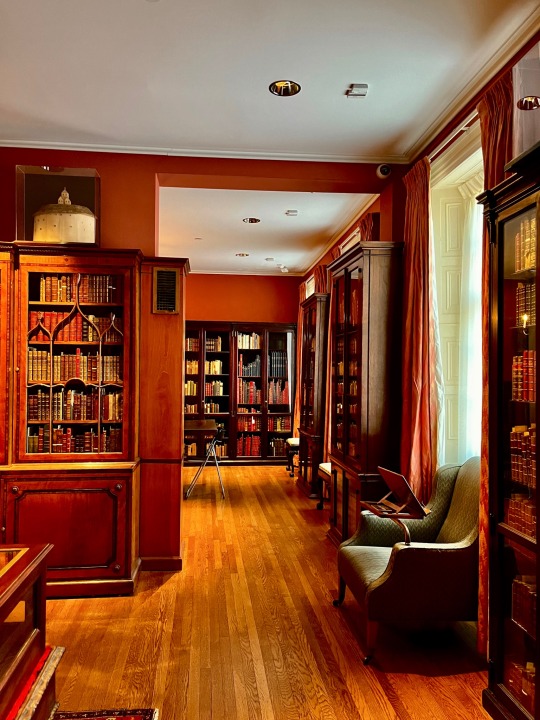
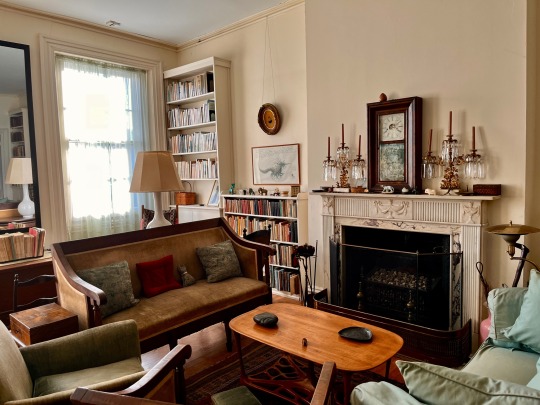
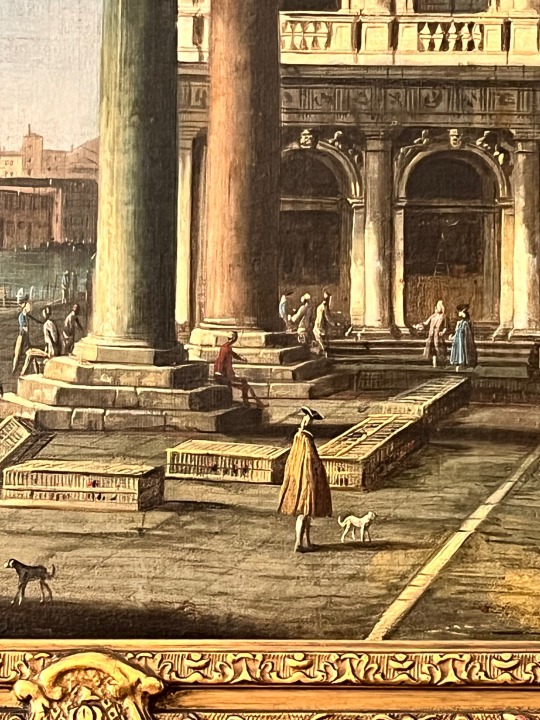

2/20/24
I have been so bad at posting on here consistently but I took these pictures while visiting my cousin in Philly this weekend and they were too pretty to not share!! If any of you are in the area and like old books, I highly recommend touring the Rosenbach Museum and Library. Full of old books, from Cicero to Cervantes to Lewis Carroll to Dickinson to Joyce. The second picture is a recreation of Marianne Moore’s living room. She was the editor of the Dial, a poet in her own right, and a friend and mentor to many literary figures of the 20th century, like Elizabeth Bishop and Allen Ginsberg.
2 notes
·
View notes
Note
Top five Elizabeth Goudge books and not necessarily your favorite five, but five poems that are particularly significant to you?
(also hello dear heart love you love you!! 💖💖💖💖💖)
Ahhh wow LOVE this.
1. The Scent of Water. It’s just such a classic and it’s so full of depth but also there’s a light touch. Mary is older and you can FEEL the peace.
2. The Dean’s Watch. The way that grace and forgiveness and coming home play out in this makes me weep.
3. Green Dolphin Street. I feel like I need to reread because tbh I think my feelings have changed but it was just sooooo formative for me in shaping some of how I felt about romantic love. And the way love is a CHOICE but also something beyond our choosing made me cry.
4. The Bird in the Tree. I love Pilgrim’s Inn. But this one is Nadine’s struggle to give David up!!!! And again, it’s just the first book that introduced me to the concept of what happens when morality and romance are at odds and I think it does it so beautifully.
5. The Rosemary Tree. It just has all the Goudge tropes but it’s also very modern in that the people feel near and the struggles fresh every time I read it. (I think her modern books are the best.)
Also poems—yay!!!
Of course Time does not bring relief by Edna. I bully my students into memorizing it every year. Stenciled Memories by Lorna dee Cervantes and The Sky now Black with Birds (Jamaal May) are both poems I read in college that haunt me to my core. No worst there is none by Gerard Manley Hopkins has helped me through some tough times. And lately I really love John Donne’s Riding Westward Good Friday poem.
#I feel like I am missing a vital one somehow (I probably am)#a vital Goudge I mean#THANK you eden!!! 💚
8 notes
·
View notes
Text
Contra el uso de la pirotecnia
Evitar uso de pirotecnia en el Estado, propone Diputada
Proteger la salud de la población y el medio ambiente, los objetivos de la iniciativa de Elizabeth Cervantes de la Cruz
Para proteger a la población y al medio ambiente de los efectos de la utilización de la pirotecnia, la diputada Elizabeth Cervantes de la Cruz presentó una Iniciativa para actualizar la Ley Estatal de Protección…

View On WordPress
0 notes